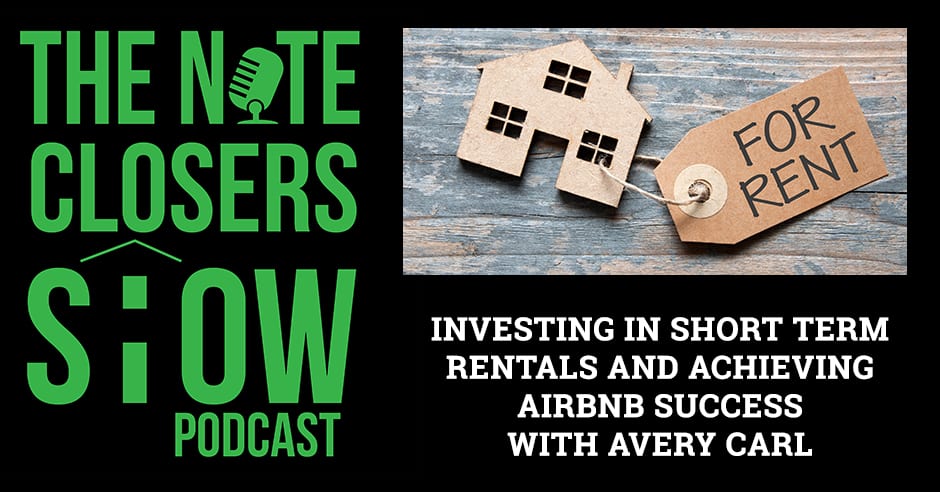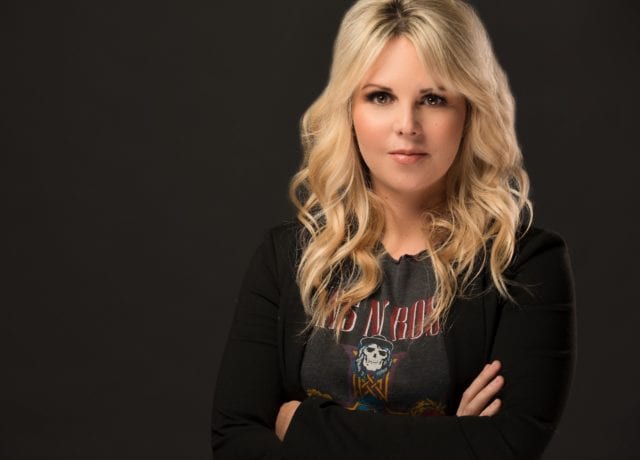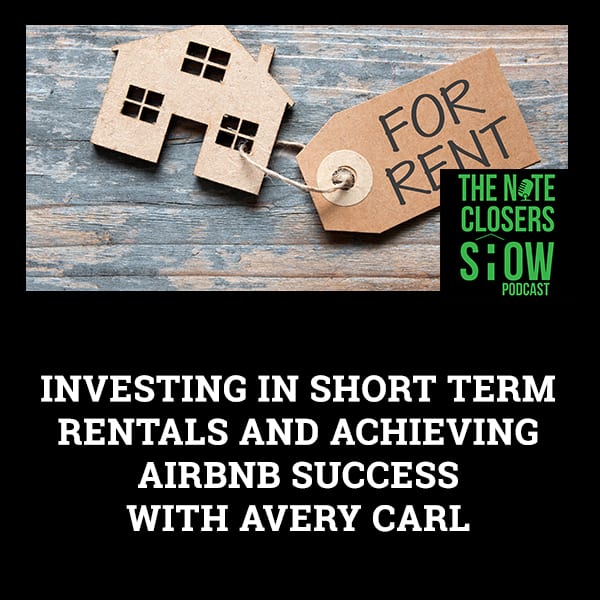
Considering the current circumstances we’re dealing with the pandemic, it would be natural to think how short term rentals are probably one of the worst affected areas in real estate. With travels put on hold, people are opting to stay in their homes, which leaves many investors who are managing short term rental properties quite stunned. In this episode, Scott Carson invites Avery Carl, a real estate investor, realtor, short term rental expert, and CEO and founder of The Short Term Shop, a real estate team that helps investors acquire short term rental properties in the most recession-resistant markets—which is just what you need in today’s world. Avery talks about how they are able to do that, laying down what makes up an ideal market for short term vacation, VRBO, and Airbnb rentals. She further discusses the biggest mistakes investors make when getting into this space, the characteristics of the best market to invest in, the automation tools to help with property management, and more. Listen in to Avery and Scott as they detail more about short term rentals and achieving that Airbnb success.
—
Watch the episode here
Listen to the podcast here
Investing In Short Term Rentals And Achieving Airbnb Success With Avery Carl
I’ve got a great guest that is going to focus on a topic. We haven’t talked about that much but I know so many of you guys out there have been interested in this aspect or working in this space worried about what’s going to happen with everything going on in the market. We’re honored to have somebody who’s killing it and doing an amazing job. She bought her first rental property at the age of 26 on a $37,000 salary through strategically investing in short-term rental properties in great vacation retail markets. She was a millionaire five years later at the age of 31. She owns a portfolio of 24 properties. As a CEO and Founder of The Short Term Shop, it’s a real estate team that helps investors acquire short-term rental properties in the most recession-resistant markets, which is what you need in nowadays world. She also spends time training them and teaching the same concepts that helped lead her out of the rat race. We are honored to have the rock star, Avery Carl joining us here on the show. What’s going on, Avery? How are you doing?
I’m doing awesome. How are you? Thanks for having me.
I’m doing great. As an investor, what made you dive into wanting to deal with that short-term rental aspect? What attracted you to that space and your mindset behind that?
When I first started, I was working as a marketing manager in the music business. I lived in Nashville at that time. My husband and I bought one rental property. We didn’t even know what real estate investing was. We didn’t educate ourselves in any way. We thought, “This might be a good way when our future kids grow up, we can sell it and pay for their college.” We never intended to go any further than that. After we got that first rent check, we thought, “We do need to go further than this.” We started educating ourselves and luckily, that one is a home run. The cashflow is $1,100 a month. We bought it right off the MLS and no idea what we were doing so we’re keeping that.
We didn’t have a lot of capital to put into this at that time so we thought, “We have this one down payment left. What can we do with it? How can we spend this to make the most money out of it to scale this thing the fastest?” We thought about short-term rentals. When a lot of people think about doing Airbnb’s, they think, “I’m going to buy a house across the street or down the street in the cool hip part of town and Airbnb it.” That’s not what we do at all. That concept, especially living in Nashville, was not appealing to us because in a lot of the big Metro areas, not just Nashville, there’s a lot of volatility with the regulations, people don’t want them there so we don’t want to mess with that. That sounds like a mistake. We thought, “Where can we go and do that where we don’t have to worry about that?” The Smoky Mountains was three hours away. That’s a place where people have always gone and rented houses, cabins or condos instead of a hotel. We thought, “This seems a good place to start.”
Fast forward, we turned that one into five within a year. It went well and then have scaled from there. We’ve got another one in Destin, Florida where we live. It’s a very similar market. People are driving in, always staying in houses or condos, not staying in hotels so much, and it’s a heavily vacation traffic area. The Emerald Coast gets something like ten million visitors a year. Smoky Mountains National Park gets thirteen million so we’ve got the friendly regulations and the heavy tourism built into the model. Taking it a step further, we take all the income from our short-term rentals, buy more traditional, tried and true long-term rentals most of them. Ours aren’t Section 8 but they’re one step above. They should be but they’re not. That’s what we do.
Buying that price range right below the first-time buyer aspect of things.
I’ve built my company, The Short Term Shop, out of when we first started, there were no real estate agents who either own short-term rentals, knew anything about managing them or Airbnb even. I’ve become that agent. I’m the top agent in the Smoky Mountains and we also have an office in Destin, Florida. It’s a little bit newer as of 2019 and then one in Gulf Shores, Alabama also as of 2019. We’re going to do the same thing. We help investors get connected with the best short-term rentals. We do the buyer agent thing and as a value add, we teach you how to run it so that you don’t have to use a property manager and pay 20% to 40% of your gross on it.
What’s the biggest mistake that you see investors get into the short-term space or the Airbnb space that they screw up on? Is it the property management side? What’s that biggest thing that they stubbed their toe on the most?
They’re the same thing but a combination of micromanagement and over improvement. A lot of these markets that have been vacation markets forever, almost everything that’s for sale there is a vacation rental, they’re going to come furnished and they were a vacation rental before you bought it. A lot of people get caught up in over-improving, trying to make it the newest, nicest, and slickest, everything. It doesn’t. People are okay with things being a little dated. I do recommend having cameras on your property to make sure that people are doing what they’re supposed to. Micromanaging those things like staring at the cameras too hard, seeing that they snuck in one extra person, and then messaging the guests and causing a problem that’s going to affect your review. Whereas if you hadn’t looked at that and you never knew, it would have been fine, it wouldn’t have affected your reviews. Not letting the business run is the main pitfall.
Having a little flexibility and some things. People enjoy it versus too much of a big brother in some cases.
Adaptability is key for sure.
Is there a rent range that you like to try to be in that you see works the best on the success of your team and your properties? Are we talking a huge property and normal 3-2? What’s the price point aspect of things that worked the best for what you’re doing?
Four-bedrooms and up are the highest return on investment period. The ones 2-3 bedrooms will do exactly what you need them to do as well. If somebody has X amount of capital to put down and you can afford to get one big one, rather than two small ones, I would definitely go with one four-bedroom and up rather than a few small ones just ease efficiency of management and the whole thing and then return on investment. The spread is a lot bigger on the bigger ones.
Are there markets out there that you like to look at to identify where it’s from the geographics? Gulf Shore is great. I love that area. Destin is beautiful. Smoky Mountains is a gorgeous place there. When you look at the characteristics of a market for people to look at for investors to identify this as an investment strategy for, what are some of those factors? You said the places that people are going to, but is there anything else that goes into that involvement?
This is where the recession-resistant piece comes in. I look for regional, drivable, vacation rental, vacation markets or tourism-dependent markets. No Metro areas and no fly-to vacation markets. This situation with COVID and then the recession in 2008, both have shown that the regional drivable destinations are the most resilient. In 2008, it was a cost issue. People didn’t have the money that they had pre-2008. They weren’t getting on a plane and flying to Aspen or Mexico but they can if they live in Ohio, they’re driving to the Smoky’s, Destin or Panama City Beach.
With COVID, what we’ve seen is people don’t want to get on a plane because they don’t want to breathe on people, they don’t want people breathing on them, and they don’t want to go to big Metro areas for the exact same reason. They don’t want to be around a lot of people. They want to drive their own car and go on a nice little vacation. They’re also ready to get the heck out of their houses. Our rentals are seeing some of the highest prices per night we’ve ever seen. It would be a high time anyway. We’re getting the highest prices we’ve ever had because of all of these factors. I know a lot of my clients who own stuff in Nashville and New York, those properties are struggling still.
That brings me to the next point. You said avoid the bigger markets. I would say you’re not too excited about Orlando or is that a market that might do some well?
I don’t own anything in Orlando but a good friend of mine, an agent in Orlando, is the queen of short-term rental investing. It’s the same thing. You have to fly there, Disney is the main attraction, and there are a lot of people in a small space. It’s not there yet back from COVID.
That’s the thing if you look at the parks. My significant other is a DVC member and always looking, “How can we write down our points? How are we doing that with the Vacation Club? When are the parks opening? What are the restrictions going to involve?” There are a couple of big factors out there. Initially, you said Nashville and you didn’t want to get into a lot of the restrictions. We’re seeing that in a lot of cities out there. More and more cities are enacting. We had that happen here in Austin, Texas. They outlawed Airbnb in Travis County for the most part. When somebody is looking and they have some that goes through that, what’s some advice that you would give them to overcome that, to pivot and move to a different market or property? What advice would you give to those that are reading?
Outside of moving to a different market, I have had some clients who own stuff in Nashville who have pivoted to a 30-day plus furnished corporate rental program. They’ve done well with it. That has happened in a lot of the big Metro areas because Airbnb and short-term rentals in general and those areas are new as of the past years where if you think of a place that you might’ve driven with your parents when you’re a kid and rented a house instead of a hotel, those are the places that will have figured out how to monetize this long ago with a local occupancy tax. They’re more in a position to where they can’t live without the short-term rentals because they’ve been around for so long whereas the Metro areas are like, “What is this? We want this to go away. We have hotels for this thing.”

Short-Term Rentals: With a short term rental, even if something’s going hideously wrong, there is no reason for you to insert yourself into that situation.
What advice would you give to somebody who’s looking at doing that but a little nervous of it not being where they could walk to review the out-of-state property, out-of-market market?
Every single one of my clients lives out-of-state from their properties. It’s the same thing with me like could I drive to one of my properties? Totally, but am I going to? No. If a toilet breaks in my house, I don’t know how to fix it. I’m going to call somebody. It’s the same as if the property that I own is in California, I’m going to call somebody. With a short-term rental, even if something’s going hideously wrong, there is no reason for you to insert yourself into that situation. Make the phone calls, do the best you can, customer service-wise, but there’s a reason for you to show up.
How’s that happening? Let’s talk about that. You’ve talked about a little bit at the front end how people hate avoiding 30% to 40% property management costs. Are you still hiring a team to help out with the management or the cleaning crew? I’m sure the booking has done automatically but the before and after the guests leave, you could say, is the biggest issue.
The markets that I’m in since vacation rentals have been big business for a long time, there’s a deep pool of cleaners and people like that. What I do is I get my clients all set-up with a list of whoever they could possibly need so that they don’t have to do that work of finding them. All you need to start in any market is a cleaner, a good handy person, and then you can build out from there. There are plenty of apps that will sync with your Airbnb and VRBO calendars. We use a regular Google Calendar with our cleaner but there’s one called TurnoverBnB, where it automatically sends them a notification. It notifies you that they saw it so they can’t say, “I didn’t see it.” There are lots of tools and automation that have come out in the past years for self-managers who are managing from a distance from any short-term rental market.
Let’s talk about the money aspect of things a little bit. Where are you seeing returns on investments going from a year-long lease on a property to a 30-day or even a shorter-term aspect of that? What increase in production and profit are you seeing for people out there?
It depends on the market. In the markets that I’m in, it depends on the number of bedrooms. The more bedrooms you have, the more money you’re able to make and not just the number of people you can sleep. A five-bedroom that sleeps twenty people is always going to make more money than a three-bedroom that sleeps twenty people. There’s a lot of data out there that you can access whatever market you’re looking at. AirDNA is going to be the most cost-effective and accessible to everyone. A subscription for one market is between $60 and $90. Their data is not perfect, it’s not gospel, nobody’s is but it’s close.
I recommend if you’re getting started, taking a look at that or getting on the major booking platforms and looking at what your potential competition is doing. Depending on the market, a four-bedroom in Destin that I have is going to do $120,000 whereas a four-bedroom in the Smoky’s might do a little bit less like you’re looking at $90,000 depending on the property. All I have to say, you have to get a few different data points and triangulate. The big national property managers are also good places to get data as well because they have the funds and the tools to mine that data. Vacasa, Evolve, and TurnKey, those guys are going to have good projections on rental properties as well.
What’s something that’s made you have to pivot a little bit or anything that’s popped up with all the Corona stuff? Anything sustainable that you’ve had to go, “I’ve got to overcome this,” that you’d like to share?
Coronavirus was an ‘oh-crap’ moment. When we’re looking at investing in properties and thinking, “Recession is coming.” We were all thinking that at the beginning of the year 2020. Something’s going to happen. We never thought it was going to be this. Beginning of March 2020, when all the shutdowns started happening, we were like, “Here it is.” Every single one of our bookings canceled for March and April 2020. The May people held off. They wanted to see what was going to happen. What kept us in the black in both markets was people who live in big cities that are close by like Nashville, Atlanta, and people that live in small condos.
Once they found out they were going to have to be working from home, they were like, “I want to come and rent your place for 2 to 3 weeks so I can social distance and work from home there.” We went and changed all of our listings and said, “Here’s a list of everything that delivers here. We have our internet as this fast. Please come and social distance with us.” We didn’t get a ton of bookings that way but we got enough to stay in the black and to break even. If it had lasted longer, we would have had to dip into cash reserves, which is totally a conversation for a whole other show. Since it was so short, we were able to break even there but it did give us an idea of the stuff that is important. You want to make sure you have good internet, there’s room, add a workspace, just a small one like a desk and some stuff. That was the only pivot we’ve ever had to do. Hopefully, the only one we’ll have to do for a while. For a worst-case scenario, it wasn’t that bad.
You have people that are living where they’re out, you’ve got 1 or 2 people having to work from home and then you add in the kids. You definitely want to spend a little time, especially if you’ve got your vacations canceled with the summer coming through, “Let’s look and find a spot that we can breathe a little bit and have a little of our own space at the top of each other.”
I had several new clients from New York City that said, “We want to buy something right now because we’re in a loft in Brooklyn with two kids, we’re both working from home. We’ll rent it out. We’re going to come and live in it for the next foreseeable future and then we’ll rent it out later.” It was something new for us.
How much are you marketing to other markets to drive your rentals? Are you relying primarily on a couple of websites? Are you guys doing a lot of SEO? Are there other aspects as to nearby drivable market?
There’s a movement of owners who do the #BookDirect thing, they do the SEO and all that. We stay so booked on Airbnb and VRBO that we don’t complicate our lives with that. If something happens with one of those platforms, we will pivot and work that out at a time. It’s working the way it is so it works smart and not hard.
You mentioned different markets. What’s another market you’re looking to? You talk about Gulf Shores. I’ve been down to that neck of the woods, drank plenty of beer there, a couple of burgers there at Lulu’s place. Lulu’s hamburger, Jimmy Buffett’s sister and spent some time there at The Hangout. Where are some other markets across the country that you’d be like, “I’ll keep my eye on this market?”
Myrtle Beach is one. Outer Banks, North Carolina is another one. There are some places out West that are good like Palm Springs but it doesn’t make sense for me personally but would make sense for a lot of people. Any of the major ski areas in Colorado and Utah. Those are going to be a significantly higher price point. Those tend to have more regulations than the ones that I’m in. Anybody can think of a place that they’ve been before that would work. You dig in and see if the numbers work too.
Do you want to share a problem tenant or a problem story with our readers on a property where you had a bad situation?
I haven’t had any major catastrophes. I’ve had some guests that I wanted to kill. That doesn’t happen too much. We had one guy who left us a one-star review because he said that our property was too remote. It’s in a neighborhood and it’s five minutes from town but you’re not looking in other people’s windows. You can hear their car start and stuff. It was too remote and that I’m not kidding. If Dwight Schrute left a review on our property, he said, “If a bear were to break in the window, there would be a slim chance of survival.” He gave us a one-star on that.
We can’t make everybody happy. There’s always somebody. That brings up a good point too. I’m willing to bet that 95% of your clients that are coming through this is your vanilla aspect of things, your normal in and out aspect. We’re always going to have a few outliers like that.
Eighty-nine percent of the time, you don’t even hear from them. They don’t ask one question the whole time they’re there. Six percent or seven percent of them will ask a couple of questions and say, “This thing is broken and you have to fix.” You have a few that you’re not going to make happy, regardless. I found that the cheaper the price per night, the more of those bad guests you get.
What price point should people be looking at to that separation of good versus bad? Are you seeing $100 a night, $150, $49? What’s the price point that you try to stay above on a nightly basis?

Short-Term Rentals: You will always have a few that you’re not going to make happy with your rental properties, regardless. The cheaper the price per night, the more of those bad guests you get.
It depends on how many bedrooms your property is. Nobody ever complains about my four-bedroom property that is $700 a night. Everybody always leaves great reviews and nobody is a pain. With one of our studio properties, you get $120 range on the two-bedroom and under $100 for the one-bedroom, then people start to be like, “You get the people go out to the steak house, eat the entire steak, and then want to refund,” because it was too done or something like that. That’s what I liken it to.
I think you’ve been in the service industry as a waiter before.
I did my time in the bar industry.
When you experienced that, you have to shake your head and like, “You’re going to be one of those people out there.” Is there something that you’d like to do with your properties that helps you stand up a little bit more? We talked about you don’t want to put over amenity, over rehab, or overdo your property. Is there something that you’re like, “This is what we’re going to do. We’ll little separate ourselves from the rest?”
This is going to sound silly and everybody should know this but they don’t. Get good pro-photos. That’s all it takes. Don’t use iPhone photos if you can help it. In most cases, it’s going to be a couple of hundred bucks. Drone photos definitely make a difference as well. Invest in some pro-photos. The highest performer of my smaller places has bright blue laminate countertops from 1990. I’ve meant to change them for a while but it stays so booked that we haven’t had time to. You don’t have to go crazy with the setting yourself apart. A lot of people are like, “I want to leave a wine. I want to leave him a gift basket.” Don’t do that. A, you’re getting yourself into trouble with leaving them alcohol and then B, with the gift basket, they’re going to complain that they don’t like chocolate chip, they wish it was peanut butter cookies that you left or somebody is allergic and they wish you wouldn’t have left it out. Keep it super simple. Make sure that you answer everybody’s questions and have good customer service. You don’t have to go crazy on anything.
I love what you said there. Don’t try to give gift baskets. I can see that’s a routine cost expense that takes away from your bottom line. It’s not going to be worthwhile in the long run. Have somebody that they can reach out to if there is an issue immediately, I imagine. Where do you see yourself going in the next five years? Do you see a much bigger explosion of short-term rentals across the country? If you had a crystal ball, what would you say you’re seeing, Avery?
I don’t know about an explosion but a redistribution as more Metro areas. There are some vacation rental areas like Jackson Hole has horrible regulations. I would have loved to have something there but their regulations are too bad. We’re an early adopter of short-term rentals that are now being regulated out. It’s going to redistribute into some other markets. I don’t know about a big explosion though, because old school investors are never going to get into the short-term rentals. They’re going to stick with their multifamilies and BRRRs. That’s a tried and true way to do it. I love my long-term rentals. I don’t hear from them as much but they don’t make as much money. We’ll see a steady growth because it is a way to turbocharge your income so that you can scale faster into more traditional forms of real estate investing if you want, or you can build a big short-term rental empire if you want to. I like to keep my portfolio diverse. As people catch on that they can do this without going all-in on vacation rentals, we’ll see a steady upward trend in vacation rental investing.
Would you advise somebody who’s looking to get into this, start if they’ve got a spare bedroom, dip their toes in the water to start off that way, running on a bedroom and see if they like that aspect of things before they go into buying a full property or anything like that?
I wouldn’t know. I would hate having somebody in my own house. If you want to dip your toe, start with a small property, and then scale up into a bigger one. Buy something that will be easy to resell if you’re not sure. If you’re not sure then it’s not for you but I wouldn’t recommend starting with something in my house.
Especially here in Austin, when we have different festivals, a lot of people will rent out their extra bedrooms for extra money.
I lived in Austin for six years and I am kicking myself for not having bought a house there when I lived there.
When was that?
That was 2006 to 2011. My bartender friends that worked at the Jackalope were buying houses on the Eastside for $70,000. I ran into him five years later. I sold my house for $600,000.
Craziness on the East side especially about that time, they’re buying shacks downtown or South of downtown and they’ve turned them into bars. You mentioned some of the areas you’re at. You said you’re using primarily the websites. I would say as advertisements at different places and bars. Do you have any type of partnerships with some of the vendors, restaurants, activities that have provided any type of affiliates or tickets reimbursed for things like that?
There are a lot of options for those kinds of things in the markets that I’m in. I haven’t done it out of laziness. I give them a list of my favorite places to go. “You’ve got to get the burger at this place, you have to go this place for that,” and they appreciate it. I don’t need to bother with anything in return from the restaurants.
You talked about The Short Term Shop. Let’s talk a little about that. Let’s talk about some of your training. What’s involved with that?
We’re real estate agents, real estate office, regular real estate sales in the Smoky Mountains, Emerald Coast in Florida and then Gulf Shores, Alabama. If anybody’s thinking about buying a property in any of these places, everyone who works for me own short-term rentals or is a real estate investor in some capacity. All of my agents are well-versed in investing in general. What we do is, if you use us as your buyer’s agent, we help you analyze the properties and make sure you’re getting the best one. On the back end, we help you with your Airbnb and VRBO listing. We get you set-up with the automation tools that you need. We use one called Your Porter. We know how to use several of them. If that’s not the one you want to use, we can help you anyway. Get you set-up with all the automation tools, get you set-up with all your vendors that you need, and get you ready to rock so that as soon as you close, you’re out the door ready to make money without having to pay a property manager 20% to 40%. All of that is complimentary if you use us as your buyer agent.
What if they’re not buying in one of your markets? They’re an out-of-state investor and they still want to talk with you. Do you offer services for somebody who’s out-of-state in a different market that you’re in?
We’ve put the brakes on that to focus on the markets that we’re in. I’m always happy to talk to other investors. I might want to buy in that market and they want to bring it to my attention. I’m always happy to share information and trade market info anyway.
I’m a fan of Gulf Shores. That market has done well. Where do you see that market going here in the next 24 to 36 months? Do you think it’s going to stand strong with the recession that we’re seeing that’s kicking in and all the defaults and stuff like that? Do you think there will be a lot of opportunities in those areas?
These kinds of areas are a little bit insulated from the real estate market as a whole. I had a lot of past buyer clients reach out to me at the beginning of Coronavirus and say, “I want to sell it.” I’m like, “We’ll list it.” We had it on the market. Obviously, it sat on the market for two months because nobody knows what’s going on. Lately, I’ve got $3.5 million worth of listings pulled away from me because they decided not to sell which is not fun for me as an agent but it’s good. It speaks well of the market because they’re making money. They’re like, “Nevermind, I don’t want to sell this.”

Short-Term Rentals: The thing that will make the property values drop is when the investment numbers stop making sense for the investors.
All that to say, somewhere like Gulf Shores is going to continue on a steady, upward trend. The appreciation in these areas is more investor-driven than it is other areas like housing and industry because there’s not industry in these places, there’s only tourism. The thing that will make the property values drop is when the investment numbers stop making sense for the investors. At that point, it might drop some or it might plateau. I don’t think we’re going to see a big bottom dropping out of anything. Now, people have enough time to get out of a second home or get out of an investment before it gets to a point of being distressed than they would their actual home. Go sell that thing for retail before it gets distressed. When you’re live in your actual home, you’ve got to ride that thing all the way down to the bottom. I don’t think it’s going to change too much. I could be wrong. I am by no means an economist. I think it’s going to keep creeping up.
You’re right about that especially on some of those areas out there. Things on the water always are the first to recover. They do well unless you’re in the Miami condo market. That’s the market that’s going to hit. Gulf Shores is such a gray area and a great place to get. Also, Destin. I didn’t understand why you call that home now. Of course, Nashville is the sister city around Austin, Texas. You’ll see a lot of the things out there. Avery, what’s the best way for our audience to connect with you to either see what you’ve got available or to work with you in those markets?
My website is TheShortTermShop.com. There’s a bunch of different ways to get ahold of me right there on the front page. Text is best, don’t call me. The phone number is there, shoot me a text, send me an email and I’m easy to get ahold of.
Avery, thank you so much for taking the time out of your busy schedule to be on the show. We definitely appreciate it. I look forward to your continued success.
Thank you so much. I enjoyed it.
That’s going to wrap it up for this episode. Pay attention to what Avery said. She gave some great advice and counsel on there if you’re looking to get into the short-term market, how to identify some things, what to look forward and what not to do. When somebody is doing an amazing job and helping other investors do the same thing, that’s the type of coach you’re looking for if this was a niche that you’re looking to play with. Go out, take some action. We’ll see you all at the top.
Important Links:
About Avery Carl
 AVERY CARL bought her first rental property at age 26 on a 37,000 salary. Through
AVERY CARL bought her first rental property at age 26 on a 37,000 salary. Through
strategically investing in short term rental properties in mature vacation rental markets,
she was a millionaire by 31. She now owns a portfolio of 24 properties, and is the CEO and
founder of the Short Term Shop, a real estate team that helps investors acquire short term
rental properties in the most recession resistant markets, and trains them on the methods
that led her out of the corporate rat race and into financial freedom.
Love the show? Subscribe, rate, review, and share!

